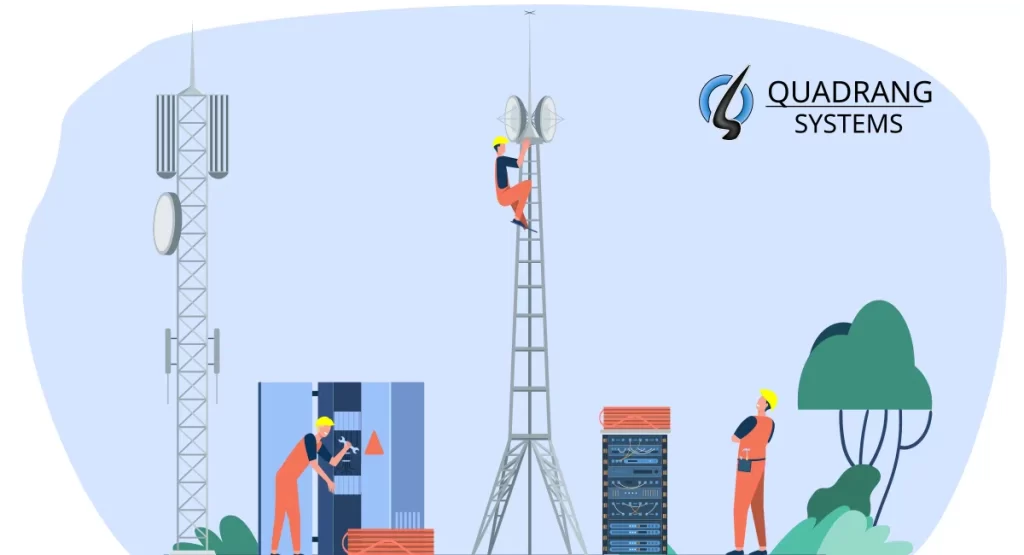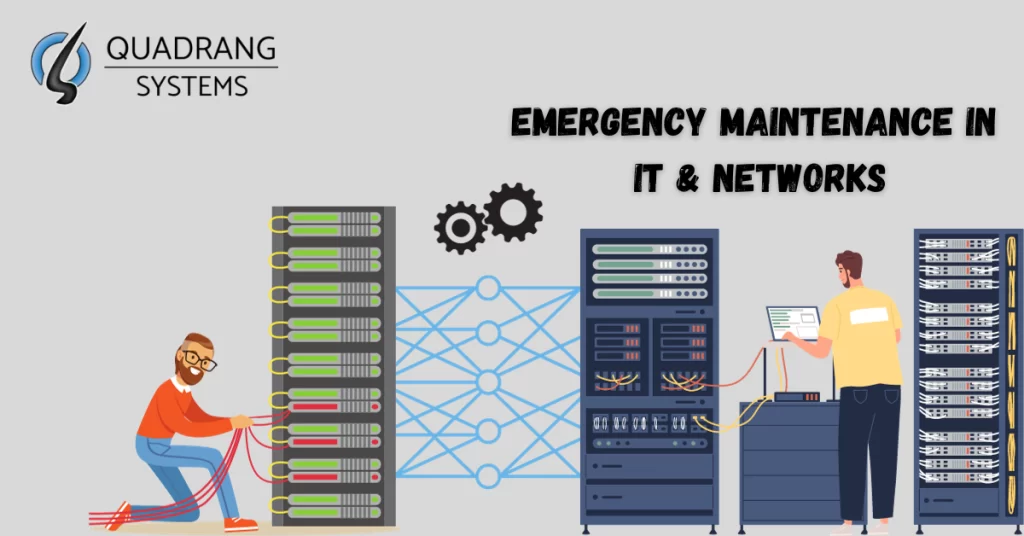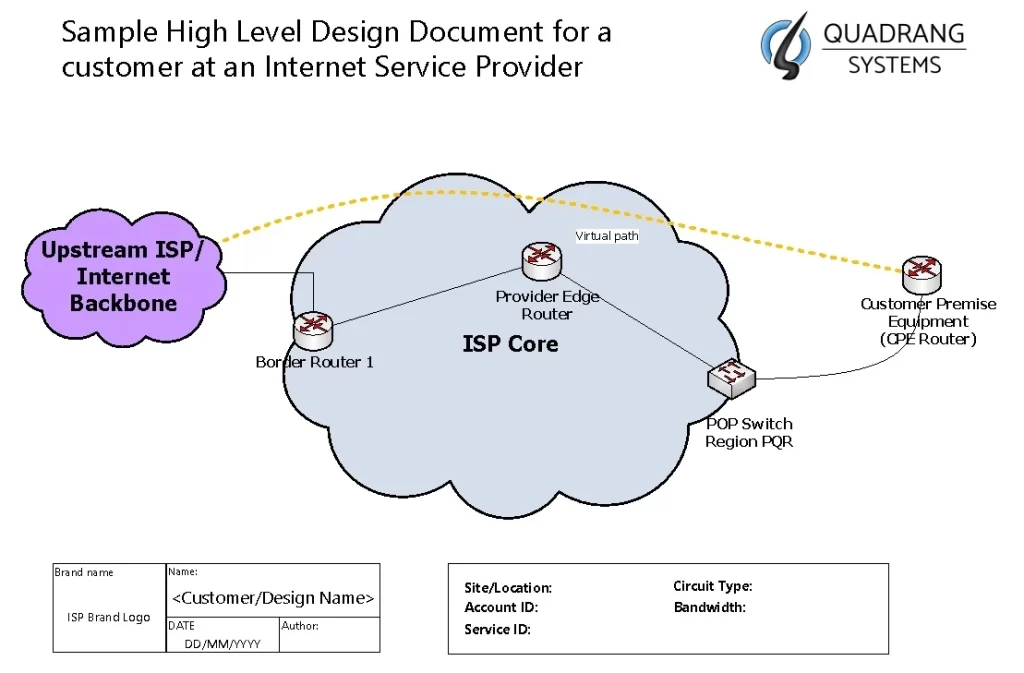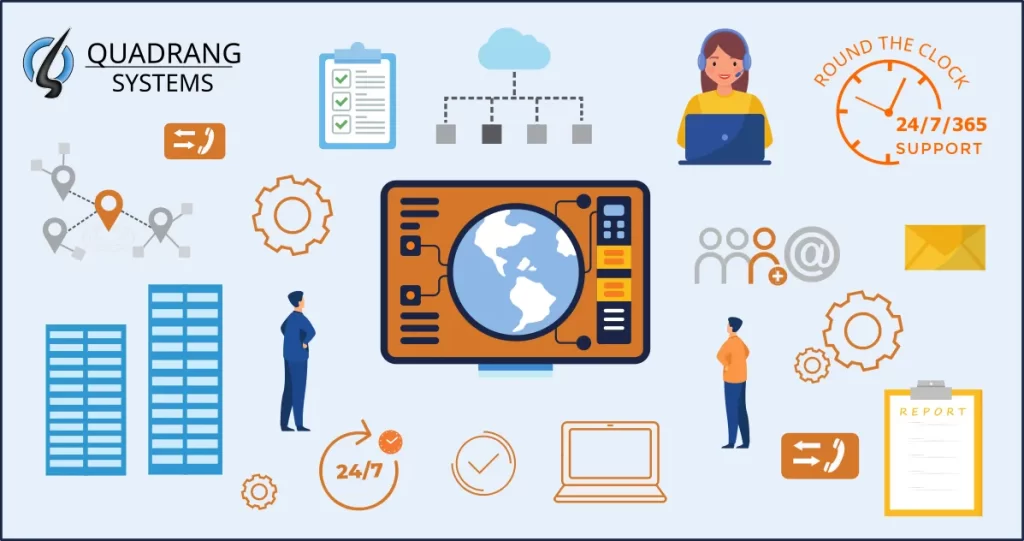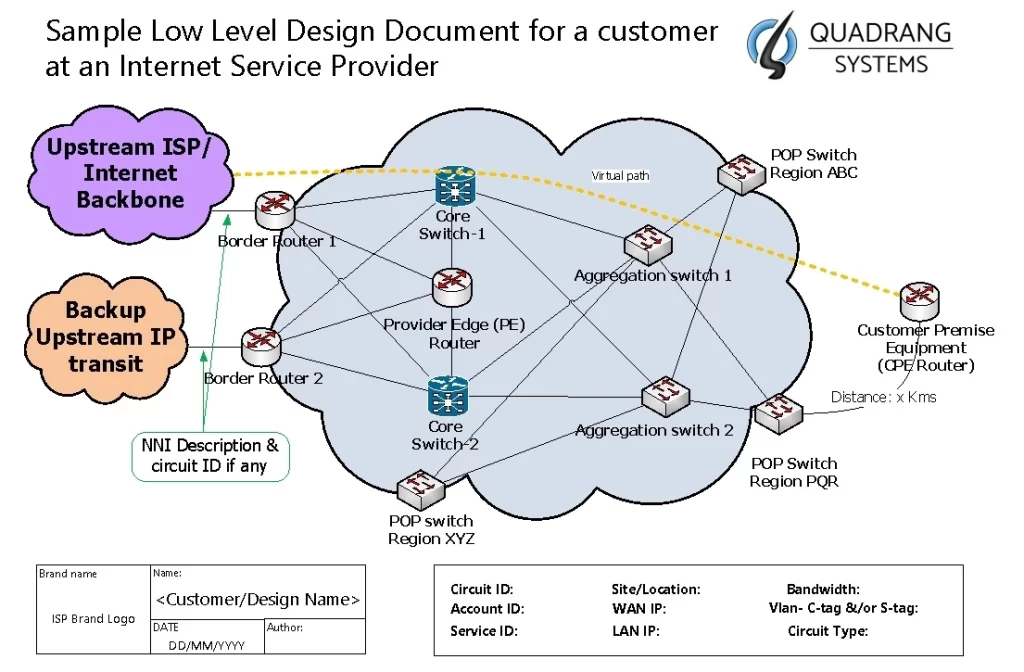Reasons Why Managed Network Services Are a Game-Changer in 2024
The modern business landscape poses complex technological challenges that can overwhelm IT teams when issues arise. As connectivity and security needs evolve rapidly, many companies struggle to keep pace. Managed network and IT services provide a compelling solution – delivering specialized expertise to deploy, monitor, and manage infrastructure and applications. These services empower businesses to focus on their core business and innovations that drive growth, while saying good bye to managing IT issues. Managing an office IT network seems simple at start, but as complexity grows, multiple vendors and multiple services merge in, it becomes time-consuming and overwhelming even for the in-house IT staff. This often requires expertise that most companies don’t have enough and therefore it is crucial to partner with managed network services providers. According to various market research firms, the managed network services market is posed to be an $82 billion market by 2026 with a CAGR of 7%
What are managed network services?
Managed network services encompass outsourcing the deployment, management, and monitoring of business networks, servers, and devices to a dedicated third-party provider. Providers supply customized bundles of proactive care and support, ensuring networks facilitate productivity with minimal downtime. Services may involve fiber internet connectivity, VPN configuration for remote workforces, firewall protection, traffic analysis, access control, and more.
Think of managed network services as having a team of experienced experts constantly monitoring the network infrastructure, servers, databases, server processes, containers and cloud services. They do so by checking syslogs, snmp traps, alarms and logs for issues and taking action proactively to ensure the IT systems runs like a well-oiled machine. From troubleshooting issues to optimizing performance, these services take the burden off your shoulders.
Outsourcing network and IT management to a managed service provider (MSP) is a game-changing solution for many businesses. Here are 5 top reasons why:
The Key Components
Four pillars comprise a robust a managed network:
- High-speed fiber optic internet with secure private (VPN’ed) connections supplying abundant bandwidth for applications
- Network infrastructure like switches, routers, WiFi access points, and structured cabling – all engineered for scalability
- Careful access control policies restricting network access to authorized users and devices
- Proactive monitoring to identify usage patterns, performance issues, and potential vulnerabilities.
How Businesses grow with Managed Networks Services
- Network and Infrastructure Continuous Monitoring
- Liaising with Service Providers for network outage and service issues
- Remote hands assistance to local IT or in-house IT team
- Network Planning, Diagramming and Documentation
- Network Troubleshooting in case of issues
Scalability: Tailoring to Your Needs
With the flexibility to serve organizations of small, medium and large sizes, managed network providers design layered solutions matching current requirements with ability to scale-up services as needs evolve, ensuring the foundations for growth remain solid. Managed network services companies like Quadrang Systems can scale up and down the manpower for client’s needs. Every MSP understands the value of job an employee has, so during downsizing a team for a client, the engineers are shuffled into other projects
Cost-Efficiency Unveiled
While implementing and managing enterprise-grade networks in-house requires substantial capital investments, yet technical staff’s wages go up the roof. Managed network services providers base their NOC and contact center in developing countries with English literacy and lower wages. Hence they are able to deliver much better talent in a one-third of the western wages optimizing cash flow. Providers realize greater economies of scale, passing on the savings to clients. Businesses divert IT budgets from maintenance to innovation.
Security: A Paramount Concern
Network outages cost US. businesses around $700 billion per year, but downtime from security breaches can be even more devastating. Managed service providers can help implement defenses including firewalls, VPNs, endpoint protection, network access controls, web filtering to stop threats. Specialized security knowledge and 24/7 threat monitoring offer safeguards that surpass most in-house IT teams.
The Human Touch: Support and Maintenance
While there are many things software applications and AI tools can do, human understanding of sensitiveness and criticalities of issues upholds optimal importance. Managed network services companies hire experienced Network, Server and Cloud engineers who are professional and adeptly provide technical support, identify improvements, and handle maintenance from firmware updates to recommending design changes or replacing obsolete equipment.
FAQs
Still evaluating if managed network services suit your organization? Common questions provide insightful perspectives:
- What risks come with managing networks in-house?
Most internal IT teams lack the headcount, expertise, and monitoring capabilities to properly detect issues. Also most in-house network teams are not manned 24/7/365. Managed network services companies are expert in this - Will a managed service provider customize services according to our network?
Absolutely. Top providers work closely with clients to understand business needs before starting any contract. Client can demand to just outsource a particular service to MSPs - What happens during an internet outage – are we alone?
No. Managed network operations centers continually monitor connectivity status. In the event of ISP-related internet failures, providers rapidly engage bandwidth carriers for diagnosis and expedited restoration, updating clients regularly while troubleshooting continues behind the scenes. - Can we still manage critical systems and devices in-house?
Yes. Managed network partnerships focus on infrastructure, connectivity, device management, security, and support to alleviate key pain points. Clients retain control over proprietary apps, sensitive data, and ecosystem integrations according to preferences. - Can we exit or switch to different a managed services provider?
Reputable managed service providers aim for long-term partnerships, but they do understand changing business needs may necessitate adjustments. MSPs are flexible and adaptable to client’s requirements up to a certain extent Transitioning at contract expiration or exiting early typically involves minimal fees.
Conclusion
Modern businesses move at the speed of connectivity. Concerns over network downtime losses, budget overruns securing enterprise-grade solutions in-house, service gaps from limited IT staff, and roadblocks keeping infrastructure behind innovation trends are driving enterprises everywhere to explore trusted managed network partnerships. Managed network services companies provide tailor-made, robust and resilient networking solutions that mesh security, support, and strategic direction to help clients concentrate capital and human resources on core operations and unique value propositions instead of maintenance. Partnering with managed network services companies like Quadrang Systems facilitates sharpening your organization’s competitive edge today while future-proofing operations for tomorrow.




